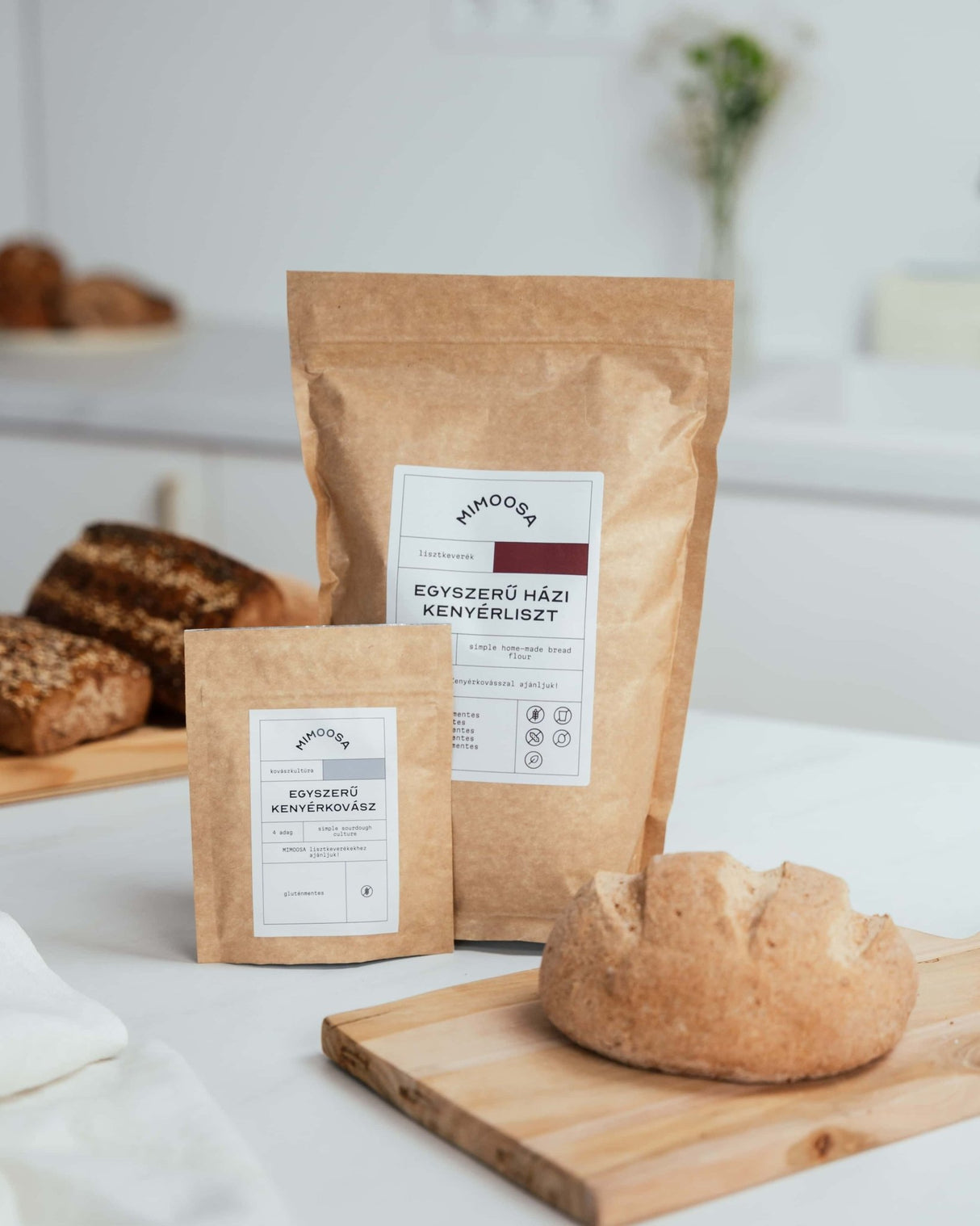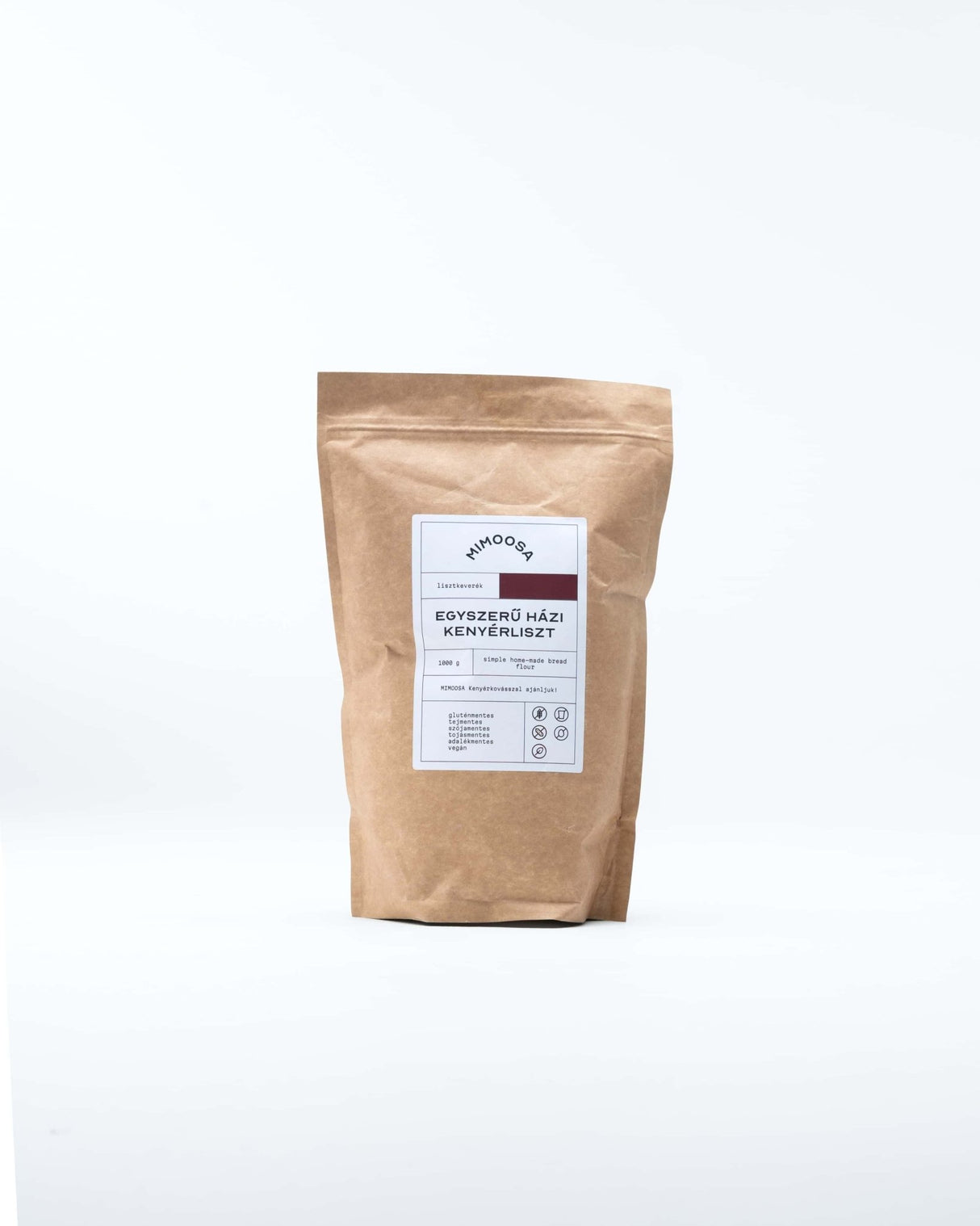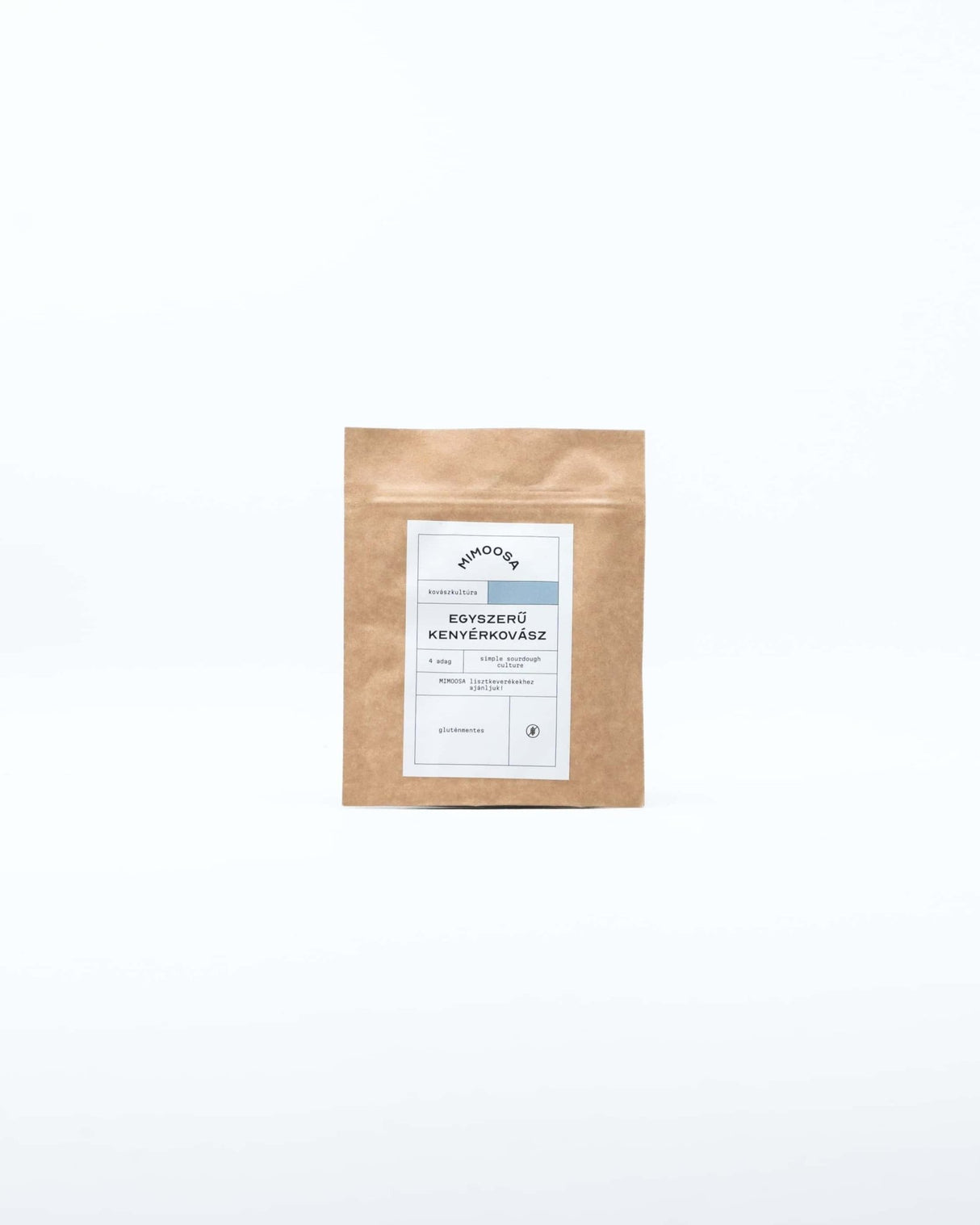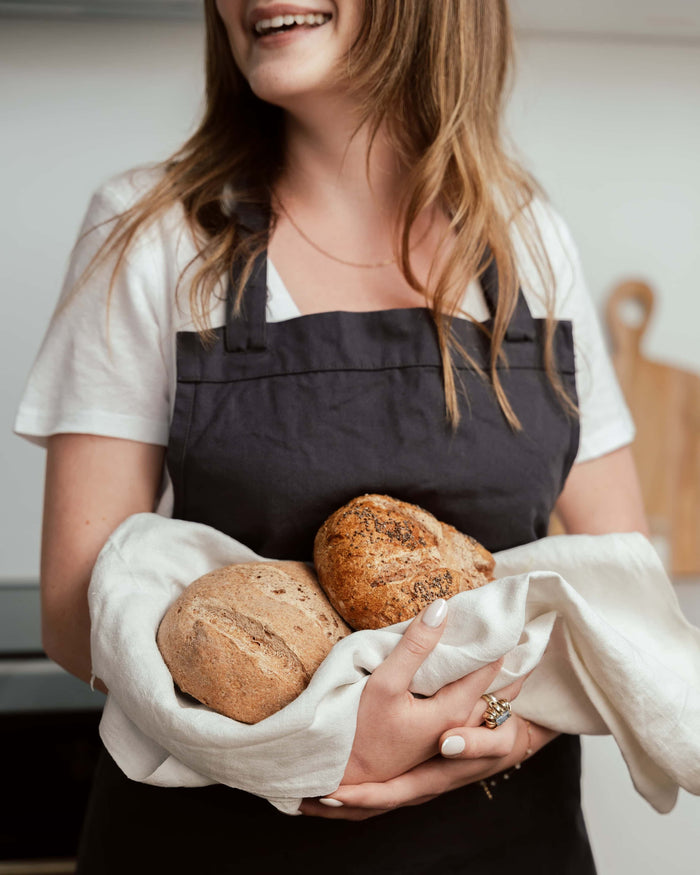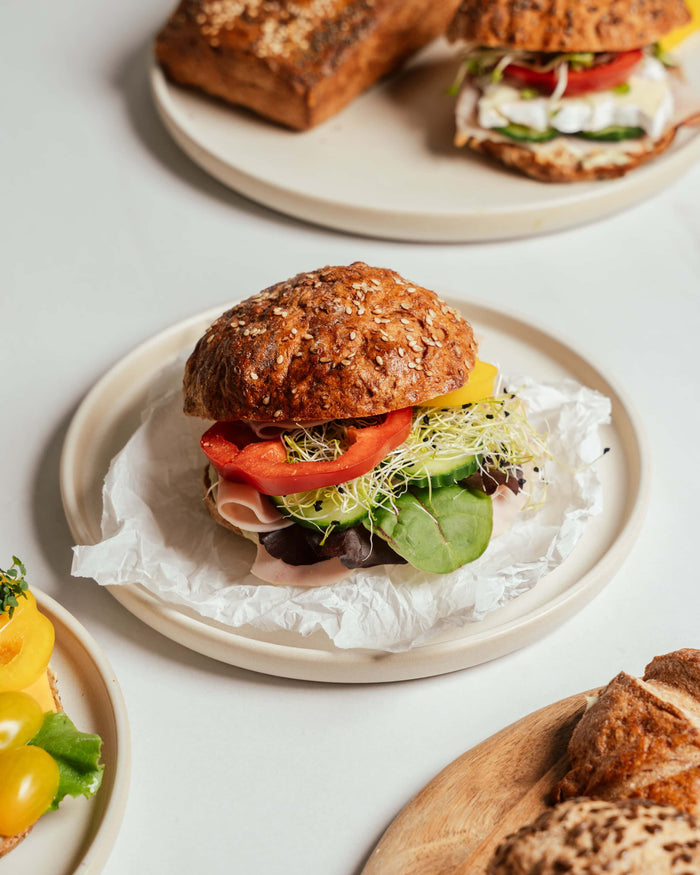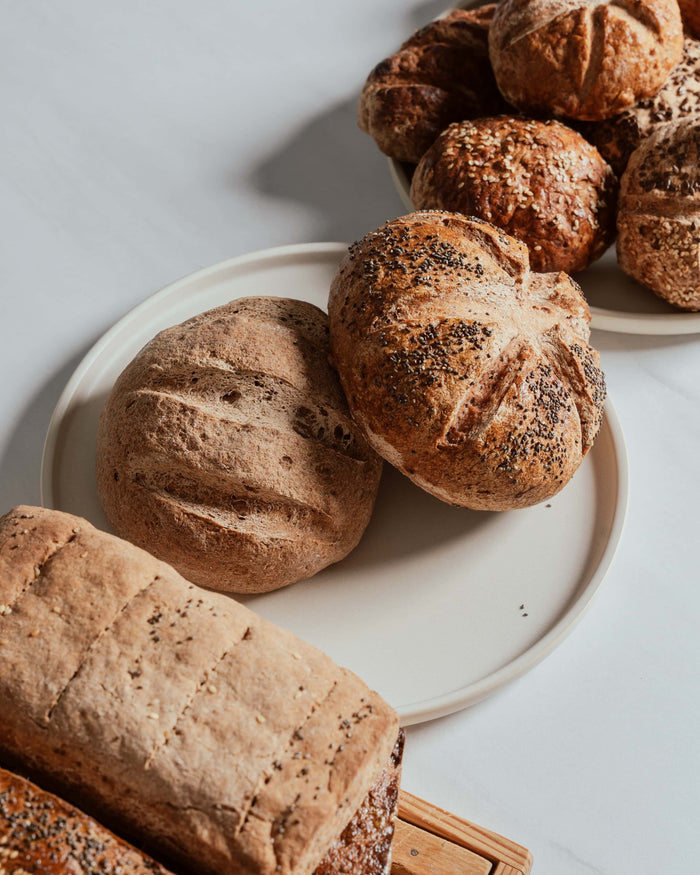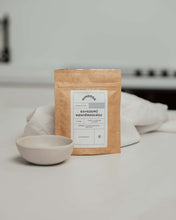Simple Homemade Bread Flour + Sourdough Culture bundle
A gluten-free flour mix with outstanding qualities.
With this flour blend, you can easily bake bread - the dough is ready to rise in just a few minutes! Among its ingredients, sorghum and tapioca stand out - both are suitable for most health-conscious diets.
100% Gluténmentes
Ez a termék előállítása egyetlen pontján sem érintkezett gluténnel!
Kényelmes
A csomag felbontása után azonnal használható.
Egészséges
A fermentált élelmiszerek jótékony hatását kutatások bizonyítják.
Simple Homemade Bread Flour + Sourdough Culture bundle is backordered and will ship as soon as it is back in stock.
Description
Description
Simple Homemade Bread Flour
A good bread is the soul of our meals. When consumed mindfully and in moderation, it is a part of a healthy lifestyle. Traditionally, the best bread is made from gluten-containing grains: soft, elastic, non-crumbly texture with a crispy crust, and divine aroma and flavor. Replacing bread in a gluten-free diet is one of the greatest challenges.
With our Homemade Bread Flour, we aim to recreate the familiar taste and texture of traditional bread. Key ingredients include neutral-tasting sorghum and tapioca, which, through fermentation and especially sourdough processes, deliver the desired aroma and flavor of bread.
Fermented sourdough bread also has an exceptionally positive effect on the digestive system affected by food sensitivities.
In cases of late-diagnosed gluten sensitivity, intestinal damage can manifest in symptoms. Fermented foods are known to have beneficial effects on poorly functioning digestive processes, so regularly consuming sourdough bread can contribute to healthy functioning.
Our Simple Homemade Bread Flour is excellent for making breads, rolls, and buns.
Average nutritional value per 100 g of flour mixture:
| Energy |
1427 kJ / 346 kcal |
| Fat | 2,4 g |
| - of which saturated fats | 0,4 g |
| Carbohydrates | 67 g |
| - of which sugars | 0,7 g |
| Fiber |
9,5 g |
| Protein | 8 g |
Simple Sourdough Culture
The healing and health-promoting effects of fermented foods are well-known today.
It is generally recommended to consume as much sauerkraut, pickles, and kimchi as possible, and you can even make these at home.
Sourdough breads are also very popular, but making them requires some experience.
However, with our sourdough culture, you can enter a new, convenient, hassle-free world of homemade bread baking.
Its use is very simple; all you need for storage is a freezer, and its effects are impressive. You can easily bake delicious and healthy breads, rolls, and loaves.
According to the recipe, the dough needs to be proofed and fermented for 12-24 hours. Details on how to do this are provided below.
Ingredients
Ingredients
Recipe
Recipe
Secure Payment
Our payment system uses a direct and encrypted connection, so card data is not stored. Shop with confidence - your data is completely secure.
Pay upon delivery!
Choose the cash on delivery payment option and settle the bill upon receiving your package!
FREQUENTLY ASKED QUESTIONS
Are the flours guaranteed to be gluten-free?
Are the flours guaranteed to be gluten-free?
Yes! All of our products are gluten-free, meaning they never come into contact with gluten at any point - from the field to your kitchen. Our production facility works exclusively with gluten-free materials. You can safely enjoy the delicious treats made with our flours, even if you’ve been diagnosed with celiac disease. In fact, two members of the MIMOOSA team are in the same boat, so we understand your concerns.
Is the sourdough culture gluten-free as well?
Is the sourdough culture gluten-free as well?
Absolutely! The bacteria and yeast in our sourdough cultures are naturally gluten-free. However, please note that our Simple Sourdough Culture contains a small amount of lactose. For those avoiding lactose, we’re excited to share that our Lactose-free Sourdough Culture is now available!
Is the sourdough culture made from flour and water?
Is the sourdough culture made from flour and water?
What makes the MIMOOSA sourdough special is that it only contains bacterial culture - it's NOT powdered sourdough or yeast. The ingredients are lactic acid bacteria, selected strains of yeast, inulin (plant fiber), and the bacteria’s carriers: maltodextrin, sucrose, and lactose.
Why is long-fermented sourdough bread good for you?
Why is long-fermented sourdough bread good for you?
The tradition of sourdough fermentation has been around for thousands of years, and for good reason. Bakers and their customers long ago realized that slow-fermented sourdough breads have health benefits. Today, science supports this — during fermentation, the beneficial bacteria in sourdough start breaking down the components of the dough. In a sense, it’s a type of pre-digestion, which makes it much easier on the stomach and digestive system. Since carbohydrates are also broken down, sourdough bread causes a lower rise in blood sugar compared to regular bread.
How long can sourdough bread be stored?
How long can sourdough bread be stored?
At room temperature, MIMOOSA sourdough bread stays fresh for 2-3 days. If it’s well-baked, it won’t mold after that, but it will start to dry out. In hot weather, it’s best to store it in the fridge, but be aware that this may slightly alter its texture.
What does this bread taste like?
What does this bread taste like?
We can confidently say it’s delicious! Of course, taste is very personal, but during our extensive testing, even non-gluten-sensitive tasters consistently said it tasted just like “regular” bread, with a hint of rye flavor.
That said, don’t expect it to taste like store-bought white bread! The beauty of MIMOOSA bread is that it’s not a substitute or imitation. It doesn’t try to mimic anything else - it’s simply a delicious and healthy gluten-free bread!
Why is the MIMOOSA bread healthy?
Why is the MIMOOSA bread healthy?
In addition to being gluten-free, the ingredients in our bread flours are also considered healthy foods. If you look at each component individually, you’ll find that they all have excellent nutritional properties. If you’re curious about the stories behind sorghum, millet, tapioca, and more, check out our blog!
Plus, none of our flours contain additives, which is another bonus in the race for healthy foods.

